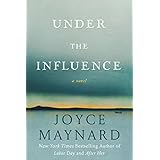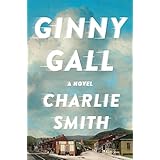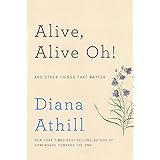
There is a knock out scene in Kate Atkinson's latest novel, "A God in Ruins," where RAF pilot Teddy, and his sister Ursula, are attending a concert at the Royal Albert Hall. While Beethoven is being performed in the background, Teddy is ruminating on the fact that he didn't want to come to the concert but is, in fact, glad that he did, for the welcome respite from the death and destruction his bombers are raining down on Germany. Ursula interrupts his train of thought with a question, softly ventured at first and then more insistent. How does it feel to be responsible for the deaths of so many innocent people? Wow!
At first I couldn't believe she had the nerve to ask. We are, Teddy reminds her, at war. But nevertheless, it was a question I always wanted to ask my dad about his time as a bomber pilot. I didn't have the courage. The question is not meant as a critique but as a conversation starter about the horrible new term, collateral damage, and the efficacy of war in general. Is even one death too much of a price to pay?
Like Teddy in the novel, my father flew thirty missions over Germany and France. He, too, had to ditch his plane into the North Sea. Reading Atkinson's amazingly realistic descriptions of what it was like for these youngsters (average age, twenty-two) to answer this call from queen and country, is very powerful. Atkinson does not romanticize the horror of war as so many do when describing World War II. I would actually call this book an anti-war novel, among many other things. It is a novel about history and our place in it, about family and the hard work that goes into making it work.
It has been called a "companion piece" to "Life After Life," the first book that introduced readers to the Todd family. By no means do the novels need to be read in sequence. The action does move around in time but, at least in the audio version, readers are always reminded of where they are. Teddy is a youngster one moment, a precocious, sensitive boy in tune with nature and the beauty of the world. Suddenly he is a man who earns the respect and admiration of everyone he meets, especially those who fly under him. Turn the page and he's an elderly grandfather trying also to be a father to Sunny, his abandoned, confused grandson.
It's as a husband to Nancy, his childhood neighbor and sweetheart, that Teddy seems least adept. Nancy is one of those women who worked with Turing in the code breaking area of the war, a brilliant mathematician. She and Teddy fall into marriage almost as an afterthought.Two less likely people to be together, let alone to parent a child, there never could be. But their daughter Viola also has a role to play in this stunning novel of truly flawed humans.
When the end came, not with a whimper but with a bang, it was so startling that I backed up the ipod and began listening all over again. This book is truly a remarkable achievement, a work of fiction within a work of fiction, and a beautifully written meditation on the power of storytelling.




